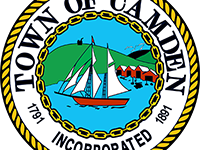Rockland approves 2019 budget; Wastewater, solid waste fees rise
ROCKLAND – Waste water and solid waste dumping fees will soon rise as Rockland settles in to a new $23,878,477 FY 2019 budget.
On Monday, June 25, Rockland’s City Council approved a 3.77 percent increase to the annual budget. All current job vacancies within the City were left frozen, yet Mayor Valli Geiger cited union contract demands, yearly increases in health insurance, and decreasing refunds from the state as constantly increasing factors.
Gieger said: “We’re not faced with great choices. We pay to be a service center. We pay to be a nonprofit center. We pay to provide a center for shopping and commerce and work for our county.... And unfortunately, that means that we are carrying a much heavier burden than we should have to.
“Just to tread water. Not to look at all the things that need to be repaired. Not to look at the things that would help this City thrive. We’re looking at a three percent budget increase every year. To make it zero means significant cuts.”
The new 9.95 mil rate for the municipal portion of a three-piece budget, which includes RSU 13 and Knox County, will impact a homeowner with a $185,000 house by $59.09. When combined with the other two budgets for a total mil rate of 23.12, the same taxpayer will see a $154.60 impact.
The minimum charge for waste water will increase upwards of three percent from $48.44 to $49.09. According to City Manager Tom Luttrell, the department incurs increased costs every year. The new fee will assist with a $10 million upgrade that will separate the facility’s infrastructure from stormwater. The charge begins July 1.
Disposal of construction and demolition debris, furniture, special waste, tires, pallets, and brush will increase, along with commercial hauler permits from $250 to $350 per year. Residents who pay through the sticker process, or who pays per bag, will not see an increase. However, tossing waste into the quarry will require more money.
“There will be no more free half-ton loads at the facility anymore,” Luttrell said. “And every time someone comes in with a ton, that will be $80.”
Rentals of the library’s Community and Board Room will increase. On the other hand, teachers will now be added to the no-charge list for library cards.
The breakdown:
Total Gross Budget: $23,878,477
Minus non-property tax revenues: $6,049,419
Total Net Budget General Fund: $17,829,058
General tax fund: $414,948
Legislative: $171,819
Executive: $194,223
Assessment: $179,646
Finance: $587,491
City Clerk: $246,822
Technology: $265,000
City Hall: $123,000
Insurance and benefits: $358,500
Community development: $201,204
Police: $2,102,274
Fire: $2,058,757
Publicly-funded utilities: $657,200
Code enforcement: $254,669
Public services: $3,133,860
General assistance: $71,266
Harbor and waterfront: $445,106
Library: $598,990
Recreation: $196,015
Total debt service: $1,200,000
Intergovernmental: $10,417,686
Capital improvement fund:$ 679,902
Sewer fund: $4,205,614
Municipal budget: $7,743,000
Mil rate: 9.95 for just City portion of the budget – average impact to taxpayers is $59.09 on a house worth about $185,000
RSU 13 budget: $9,412,000. Together with the County increase hikes the mil rate to $23.12 – average impact to taxpayers with houses valued at $185,000 equals $154.60, an increase of 3.77 percent from last year.
Sarah Thompson can be reached at news@penbaypilot.com
Event Date
Address
United States






















